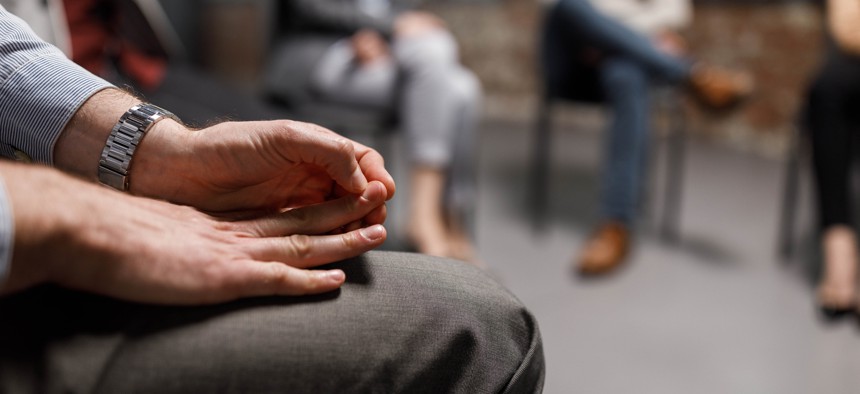Veterans Affairs chooses 10 projects for $20M suicide prevention challenge

Gettyimages.com/ skynesher
The VA is eyeing the use of artificial intelligence and virtual reality to find new ways to prevent veteran suicides.
The Veterans Affairs Department has named 10 winners of its Mission Daybreak program, a $20 million challenge to develop ways to prevent veteran suicides.
Among the winning submissions are solutions that leverage artificial intelligence, communications, mobile applications, and virtual reality.
The VA received more than 1,300 submissions from veterans, veteran service organizations, community groups, health IT companies, startups and universities.
Preventing veteran suicides has been a priority of the past several administrations. Suicides decreased for the second year in a row back in 2020 and fewer veterans died by suicide than any year since 2006, the VA said in its announcement.
With the challenge program, the agency is looking for a wide range of solutions. “Our veterans need and deserve suicide prevention solutions that meet them where they are, rather than taking a one-size-fits-all approach, and that’s exactly what Mission Daybreak has delivered,” VA undersecretary for health Shereef Elnahal said in a release.
These two first-place winners receive $3 million each:
- Stop Soldier Suicide’s Black Box Project, which analyzes data from digital devices of veterans who died by suicide to develop machine learning models to identify never-before-known risk patterns.
- Televeda’s Project Hozho, a mental health app for American Indian and Alaska Native populations. The solutions incorporates traditional healing practices like storytelling and talking-circle interventions. The concept will start with Navajo veterans and will adapt and expand to other tribes.
Three second-place winners will receive $1 million each:
- ReflexAI is an artificial intelligence tool to train and maintain a team of responders at the Veterans Crisis Line.
- Sentinel is a mobile app to encourage the safe storage of firearms. It integrates with smart firearm and medication locking devices.
- Battle Buddy is a virtual, human-led mental health and wellness application that uses AI to power daily check-ins. It also connects with wearable sensors to leverage sleep, exercise and other health signals.
Five applicants reached third-place awards worth $500,000 each:
- Even Health’s Cabana is a virtual reality-based platform to support veterans who have survived a suicide attempt.
- NeuroFlow is a technology platform that offers resources and digital care. It also measures evolving behavioral health needs to inform care teams of potential crisis before they happen.
- Overwatch Project is a peer-based intervention program where veterans work with other at-risk veterans to temporarily hold their guns or take protective storage measures. The program includes training, community engagement, and communication initiatives.
- OxfordVR’s gameChange is a virtual-reality game that a digital therapeutic with the Food and Drug Administration's Breakthrough Device designation. It is used to treat several social isolation common to PTSD, psychosis and severe depression. The game offers an immersive opportunity to treat veterans where they are before a crisis moment.
- Team Guidehouse has a data platform that integrates social determinants of health and social media data into the health record and an external dashboard to identify at risk veterans.
